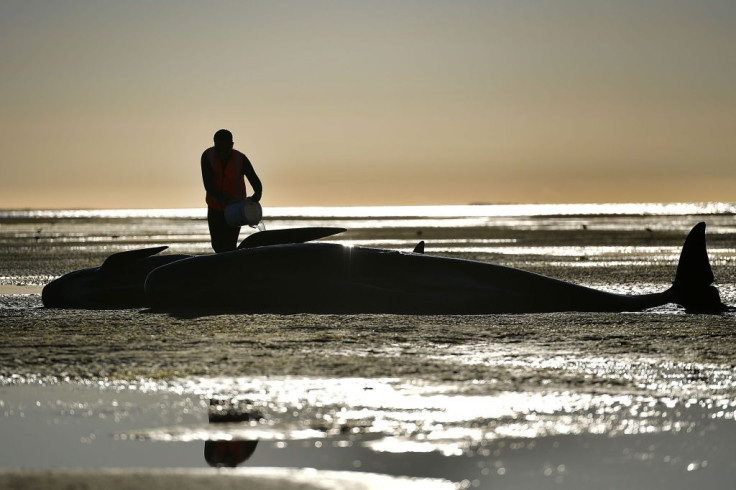Pilot Whale Found With 17 Pounds Of Plastic Trash In Stomach Dies

In the latest case of human trash and its traumatizing impact, a male pilot whale died with dozens of plastic bags in its stomach.
The marine animal was found suffering, failing to swim or even breathe, in a Thai canal near the Malaysian border Monday, the Washington Post reported. Rescuers reached on the spot and called in vets to keep the creature alive and nurse it back to health.
However, the whale kept throwing up plastic bags from time to time and succumbed five days later on Friday, Thailand’s Department of Marine and Coastal Resources said in a Facebook statement. The post-death autopsy of the animal revealed that it had more than 80 plastic bags or approximately 17 pounds of trash in its stomach. The plastic bags found inside the whale’s stomach were so many that there was no space for the authorities to walk around in the autopsy room without stepping on the trash.
Plastic bags jam stomach of dead pilot whale in Thailand https://t.co/WfZQpjSjm2 pic.twitter.com/8vxGCkgLZK
— Reuters (@Reuters) June 3, 2018
Thailand is one of the biggest consumers of plastic bags in the world and according to Kasetsart University marine biologist and lecturer Thon Thamrongnawasawat, nearly 300 marine animals including pilot whales, octopuses, dolphins, and sea turtles die every year in national waters after swallowing the garbage humans dump into the oceans.
“If you have 80 plastic bags in your stomach, you die,” Thamrongnawasawat told Agence France-Presse. “It’s a huge problem. We use a lot of plastic.”
As the Post reported, officials in Thailand believe the whale likely mixed up food with plastic bags and kept eating all the trash that came to it. Pilot whales are normally known to eat squids, octopuses, or small fish, but in this case, the massive number of plastic bags blocked the whale’s nutritional food and affected its health.
Though it still remains unclear whether the whale was short or long-finned, it’s worth noting that the population of the former, native to Southeast Asian waters, has been declining, with International Union for Conservation of Nature or ICUN’s Red list noting a 30 percent decline over last 71 years.
As for plastic pollution across the globe, a 2014 study revealed that approximately 5 trillion of garbage has been dumped into the ocean, while another from this year noted that the Great Pacific Garbage Patch, located between Hawaii and California, alone contains a whopping 87,000 tons of plastic trash. Such an amount could take hundreds of years to clear up and affect the marine ecosystem significantly, wherein animals could eat-up the plastic or get entangled in it.
Just a couple of months back, nearly 60 pounds of trash was found in the stomach of a sperm whale that was discovered dead on Spanish coast whereas, in 2016, more than 30 sperm whale that beached in Europe had plastic debris in their stomachs.
© Copyright IBTimes 2024. All rights reserved.











